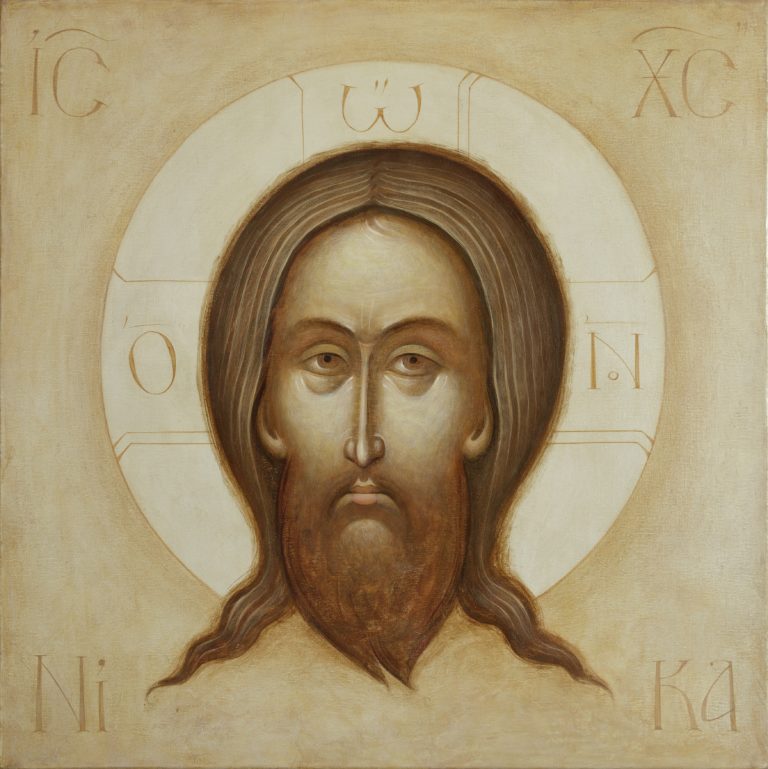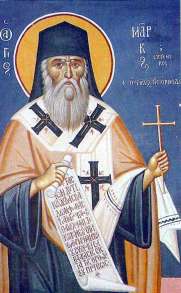28 May 2023
The Sunday of the Holy Fathers, which our Church celebrates during the time of Pentecost, is dedicated to the memory of the Holy and God-bearing Fathers of the 1st Ecumenical Synod, in Nicaea, at which Saint Athanasios the Great and Saint Spyridon the Wonder-Worker were present and gave their testimony on behalf of the faith.
In the Holy Spirit, the Synod expressed the received faith of the Church and formulated its dogmatic teaching concerning the second person of the Holy Trinity, the Son and Word of God, Jesus Christ, who is both God and human. The significance of the 1st Ecumenical Synod lies in the fact that it defended the faith against the heretical teaching of Arius and his supporters, who claimed that Christ was not God but a human person. This is the greatest heresy ever, since, as the Holy Fathers point out, if Christ is created and is merely a human being, how could he save us?

According to the teaching of the Orthodox Church, the name ‘Christ’ stands for the whole of the Holy Trinity. ‘The title of Christ is a confession of the whole. For it denotes the chrismating Father, the chrismated Son and the chrism, the Spirit’ (Basil the Great). The God of Abraham, of Isaac and of Jacob was revealed to us in the person of Christ, through his incarnation. The incarnate Word of God, then, the historical Jesus, God and human being, is precisely the essence of the revelation of God, the essence of the faith.
Christ and the Church
In the Orthodox faith and in the experience of our Church, Christ is inseparable from the Church, which is his body, and the Church is inseparable from Christ, who is its head and origin, its life and its ethos. Those who seek to separate Christ from the Church or the Church from Christ make the greatest of errors and fall into the greatest of deceptions and heresies: Christ is the incarnate Word of God, but they denude him and strip him of his flesh, expelling him from his body. But this also means that they expel him from humanity and from the world.
In the person of Christ, the greatest battle was fought and the power of sin was routed, the curse of the law, the ineluctable fate of us mortals, the dominion of death. Those who are baptized in the name of the Holy Trinity put on Christ and enter his body, the Church, and make this victory their own, by the grace of the Spirit.
Our Orthodox identity
The Holy Fathers give us the message of a new effort towards our internal and external freedom, the way we experience our identity. What we need to do is to allow ourselves to be kindled by the flame of their own burning inspiration. Because they know that the greatest enemy of any people is its loss of self-awareness, the erosion of its cultural identity and the alteration of its whole ethos. The clearest dereliction of responsibility towards ourselves and the problems we face is to think that our greatest concern is what we demand, rather than what our ethos is. It’s only through the preservation and conservation of our identity and the awareness of who we are that we can be witnesses to the faith and our culture. Witnesses to ourselves and worthy to hold in our hands our inheritance and tradition which have been guarded in hearts over generations.
In other words, we must focus on the Church, mature in it, and experience its sacramental tradition, which encompasses all revelation and vision, and is a foretaste of the life to come and of bliss.
Source: https://pemptousia.com/2023/05/jesus-christ-the-son-and-word-of-god-sunday-of-the-holy-fathers-2/

